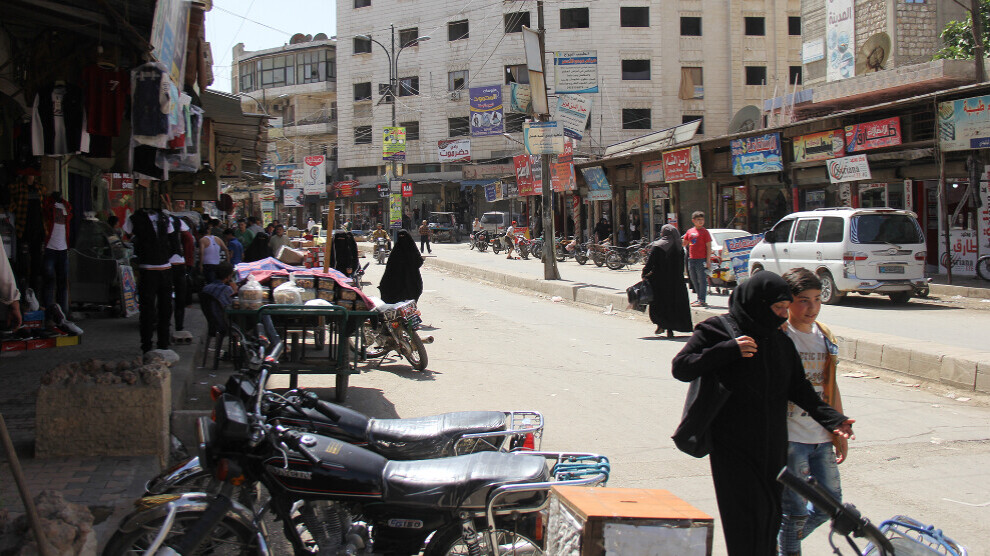Over-the-counter pain medications increase addiction rate in Idlib
In Idlib, the pain medications lead to addiction among people, especially those injured in the war. Such medications are sold illegally without a prescription by many pharmacies.

LÎNA EL-XETÎB
Idlib- People living in Idlib, occupied by the Turkish state and its armed faction Hay'at Tahrir al-Sham (HTS) have been affected by the ongoing Syrian war. Those injured in the ongoing war suffer from psychological problems and physical pain and they get addicted to pain medications prescribed by doctors and to over-the-counter medications sold by pharmacies. The instability and insecurity make it easier to use and sell such medications.
29-year-old Hanadi Al-Yassin got addicted to pain medications after being injured in a clash. “After I was injured and lost one of my legs, I got addicted to pain medications,” she said. “I first used pain medications to relieve the severity of the pain in my leg. Over time, I needed higher doses. I cannot live without them now. I tried to stop using them many times; however, I could not.”
She received addition treatment
32-year-old Zainab Haj Taha, a displaced woman from the city of Maarat al-Numan living in the Harbanoush IDP camp in Idlib, is a drug addict. “I was a student of the Faculty of Letters at the University of Aleppo. I was arrested by the Damascus government when I was in my last year of university. I was released from prison after nine months thanks to the efforts of my family,” said Zainab Haj Taha, who had to drop out of school for fear of being arrested again. “I had nothing but drugs. I isolated myself and I realized my bad situation very late. I received addiction treatment to get rid of drugs.”
‘It was the hardest time of my life’
25-year-old Rana Gülsüm also got addicted to pain medications after being injured in a clash. “I lost one of my hands and eyes. I was in pain and my doctor prescribed a painkiller. At the beginning, I took only two painkillers every day but then I started taking eight painkillers every day. I became addicted to painkillers. With the support of my relatives, I received an addiction treatment at a center in Idlib for five months. It was the hardest time of my life but I overcame my addiction.”
In an interview with NuJINHA, Hanan Al-Sayadi, a doctor in Idlib, spoke about the over-the-counter pain medications and how they lead to addiction. “Syrian law prohibits pharmacists from selling these medications to patients. However, they sell these medications to make money,” she said, stressing the threat posed by pain medications. “Addiction is an inability to stop using a substance or engaging in a behavior even though it may cause psychological or physical harm. It affects individuals and society, and can lead to death when taken in high doses. Awareness-raising activities should be carried out about the threat posed by pain medications.”
